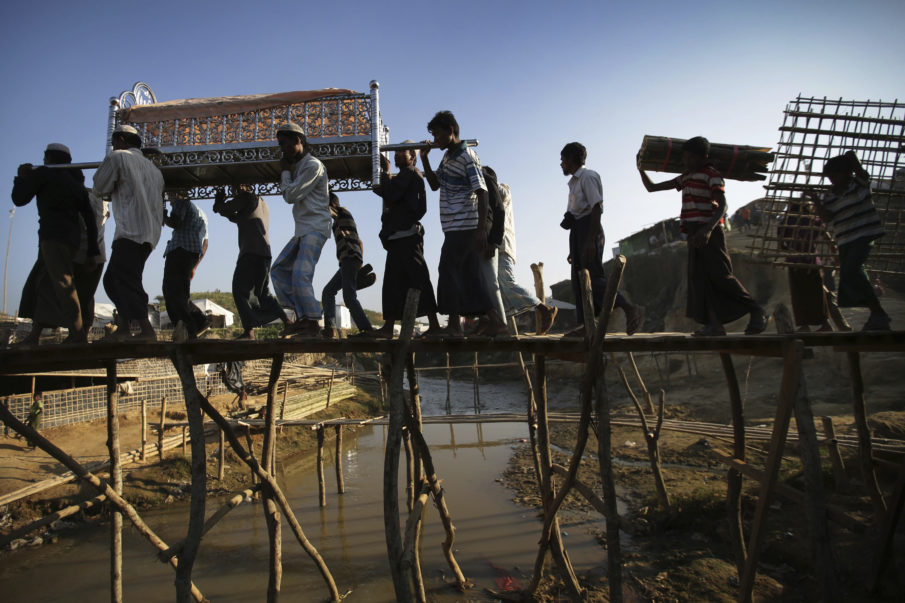It’s easy to forget about ongoing conflicts, after the news reports the same thing over and over again. Africa seems like the type of place where the conflict never ends, and without a solid knowledge of the geography, demographics and politics of the area, it all just sort of blurs together. The same goes for the conflicts within Burma/Myanmar—what difference does it make when they target the Karen as opposed to the Rohingya? Or the Kachin or the Karen? What’s the difference between Rakhine State and the Rohingya population in it? These are all questions that are difficult to answer without putting time and effort into them, and so they blend into one large, forgettable conflict.
Of course, when it comes to the Rohingya, the difference many (but not all) seem to lock onto is the fact that much of the population is Muslim:
“Why would any country want them after they started wars in their country? That has to be the stupidest thing in man’s history welcoming snakes into your homes”
“Oh dear. Are they insisting on building mosques yet?”
“Myanmar is fighting against ISIS terrorists among the Rohingya. They don’t want to be the next Syria- good for them”
These are actual comments on SOFREP’s Facebook regarding the conflict as reported on in the past. No such commenters have really based these comments in any facts (one might suspect they didn’t read the articles themselves, otherwise their questions would be answered), just a general disdain for Muslims, regardless of how those same Muslims treat or act around other people. And regardless of whether or not they are ISIS extremist militants or just some kid in the Burmese jungle who is now forced to run days through the jungle to wind up living in a packed, disease-ridden refugee camp.
If you honestly want to know the inciting incidents: yes, Muslim fighters carried out devastating acts of violence against Burmese government forces in the past. People were killed. This is not comparable to Islamic Extremists in the Middle East—non-Muslim fighters in eastern parts of the country have done the same thing, and it’s an incredibly complicated situation. When ethnic tribes have been subject to genocide, you would expect retaliatory violence. It’s when the government takes those friendly casualties and uses them as an excuse for “textbook ethnic cleansing,” that much of the world starts to have a problem with it.
First of all, the civil unrest in Burma is the longest standing civil war in modern history. This stuff started after WWII—we’re not talking some post 9/11 Islamic terrorism. We’re also not talking the Islamic hatred toward Western government because, spoiler alert, Burma is not located anywhere near “the West,” nor does it share much of our politics.
A fair number of aid organizations across the globe get bad raps for misusing funds donated to them, but there are countless aid organizations funneling incoming funds for good uses. When it comes to the relief efforts on the ground with the Rohingya, Partners is constantly breaking their backs to help however they can, especially in the refugee camps in neighboring countries.
Partners recently released this video:
Featured image courtesy of the Associated Press
Already have an account? Sign In
Two ways to continue to read this article.
Subscribe
$1.99
every 4 weeks
- Unlimited access to all articles
- Support independent journalism
- Ad-free reading experience
Subscribe Now
Recurring Monthly. Cancel Anytime.











COMMENTS